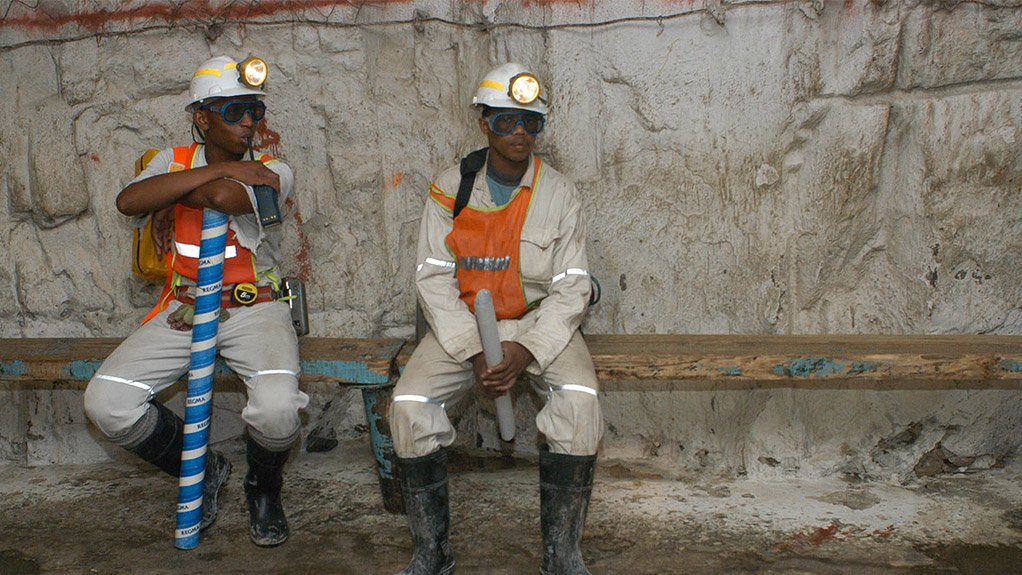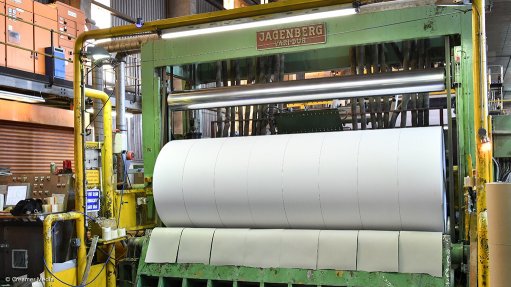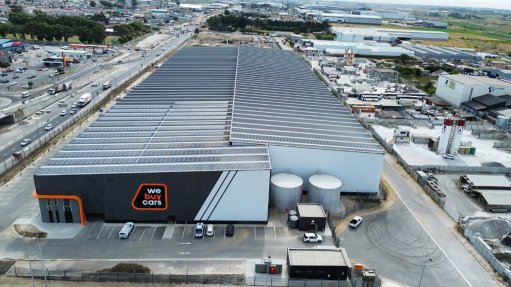12.9% of mineworkers severely indebted


A HELPING HAND Gold majors are putting various measures in place to deal with the actions of unscrupulous lenders and the effect it has on vulnerable mineworkers
Photo by Duane Daws
A recent study by the University of Pretoria has shown that 12.9% of South African mining industry employees have emolument attachment orders (EAOs), or garnishee orders, against their names and are severely indebted.
This is as a result of mineworkers’ stable employment status, as they are being targeted by illegitimate credit providers who lure them with easy access to loans.
These easy-access loans, in turn, lead to miners becoming indebted because they often do not understand the consequences of taking such loans.
Further, an investigation by the National Credit Regulator revealed the significant exploitation of vulnerable mining communities, with the regulator suggesting that these practices might have played a role in creating the conditions leading to last year’s labour strikes in the mining sector.
In response to these challenges, gold majors AngloGold Ashanti, Gold Fields, Harmony and Sibanye Gold are putting various measures in place to deal with the actions of unscrupulous lenders and the effect it has on vulnerable mineworkers.
Sibanye Gold human capital development manager Sherin Ramparsad states that poor financial awareness and a lack of financial discipline are significant contributors to the excessive indebtedness of mineworkers.
The gold producer believes that many employees fail to budget adequately, resulting in financial distress. This prompted the company to adopt a three-pronged approach to employee indebtedness.
Firstly, empowering employees to manage their finances. This involves assessment, financial empowerment training and keeping employees informed about changes to legislation that might impact on their finances.
Secondly, supporting employees who are in financial difficulty through counselling, management and working towards and maintaining a debt-free lifestyle.
Thirdly, informing employees of new claims against their salaries and inviting them to call helplines or contract consultations to discuss the interest and implications of the new claims on their take-home pay.
“A financially stable employee is a happier employee,” says Ramparsad, adding that this makes for a safer workplace and more stable labour relations.
Meanwhile, Harmony Gold is also focusing on changing its workers’ spending behaviour and is using storytelling to try to deal with the significant problem of employee indebtedness.
In Africa, storytelling has been used for centuries to inspire action and pass cultural values from one generation to the next; it is in the same spirit that Harmony Gold hopes to empower employees with the knowledge they need to better manage their financial wellbeing.
While indebtedness is not a mining- specific problem, mine employees and mine communities have been easy pickings for deceitful lenders and intermediaries, says Harmony Gold CEO Graham Briggs.
As the gold miner agrees with the fact that an employee’s financial wellness has a direct impact on personal effectiveness in the workplace, it aims to change employees’ spending behaviour before they face the prospect of going home with little or no pay at the end of the month.
Therefore, Harmony Gold is rolling out the Five Fingered Rule programme to equip its 34 000 employees with the practical skills to become and remain debt-free.
“The programme is designed to equip employees with the knowledge to understand their financial situation better and evaluate the options that will facilitate this,” says Briggs.
Meanwhile, AngloGold Ashanti’s approach to dealing with indebtedness primarily aims to reach employees before their situation is so dire that they are at the mercy of administrators or so-called loan sharks.
The miner’s campaign – Masibibanise Izandla, translated as managing today, for tomorrow, together – is ready to be rolled out and will be supported by a toll-free helpline for employees and a dedicated in-house referral agent.
“Since indebtedness was a wage review issue, and in view of our business commitment to our employees, we decided to bring unions on board at an early stage,” says AngloGold Ashanti labour relations VP Ian Jacobs.
“By designing a solution side by side, we hope to get organised labour’s buy-in and leverage their considerable understanding upfront,” he adds.
AngloGold Ashanti compared its in-house processes regarding the acceptance and processing of EAOs, with guidelines set out by the Chamber of Mines.
Finding that its processes are in order, the gold miner investigated the extent of indebtedness at its operations before sharing the findings with unions.
In conjunction with the unions, the company has now agreed to investigate the matter further.
Data gathered thus far shows that almost 3 000 AngloGold employees, about 10% of the workforce, have EAOs.
Similarly, an internal audit at Gold Fields’ South Deep mine, in Mpumalanga, showed that 180 employees, or 5.5% of the workforce, currently have a total of 268 garnishees against their names, while another 2% of the operation’s employees have maintenance orders that are deducted from their salaries, says South Deep remuneration manager Shiraz Essakjee.
Financial behaviour is not easy to change overnight, he adds.
“[However], the benefits of getting to a situation where debt levels are manageable and getting loans from registered and reputable financial institutions will encourage employees to change their habits,” he says.
These measures were highlighted at the ‘This is Gold’ conference, which took place in Johannesburg, in December.
Article Enquiry
Email Article
Save Article
Feedback
To advertise email advertising@creamermedia.co.za or click here
Comments
Announcements
What's On
Subscribe to improve your user experience...
Option 1 (equivalent of R125 a month):
Receive a weekly copy of Creamer Media's Engineering News & Mining Weekly magazine
(print copy for those in South Africa and e-magazine for those outside of South Africa)
Receive daily email newsletters
Access to full search results
Access archive of magazine back copies
Access to Projects in Progress
Access to ONE Research Report of your choice in PDF format
Option 2 (equivalent of R375 a month):
All benefits from Option 1
PLUS
Access to Creamer Media's Research Channel Africa for ALL Research Reports, in PDF format, on various industrial and mining sectors
including Electricity; Water; Energy Transition; Hydrogen; Roads, Rail and Ports; Coal; Gold; Platinum; Battery Metals; etc.
Already a subscriber?
Forgotten your password?
Receive weekly copy of Creamer Media's Engineering News & Mining Weekly magazine (print copy for those in South Africa and e-magazine for those outside of South Africa)
➕
Recieve daily email newsletters
➕
Access to full search results
➕
Access archive of magazine back copies
➕
Access to Projects in Progress
➕
Access to ONE Research Report of your choice in PDF format
RESEARCH CHANNEL AFRICA
R4500 (equivalent of R375 a month)
SUBSCRIBEAll benefits from Option 1
➕
Access to Creamer Media's Research Channel Africa for ALL Research Reports on various industrial and mining sectors, in PDF format, including on:
Electricity
➕
Water
➕
Energy Transition
➕
Hydrogen
➕
Roads, Rail and Ports
➕
Coal
➕
Gold
➕
Platinum
➕
Battery Metals
➕
etc.
Receive all benefits from Option 1 or Option 2 delivered to numerous people at your company
➕
Multiple User names and Passwords for simultaneous log-ins
➕
Intranet integration access to all in your organisation



















